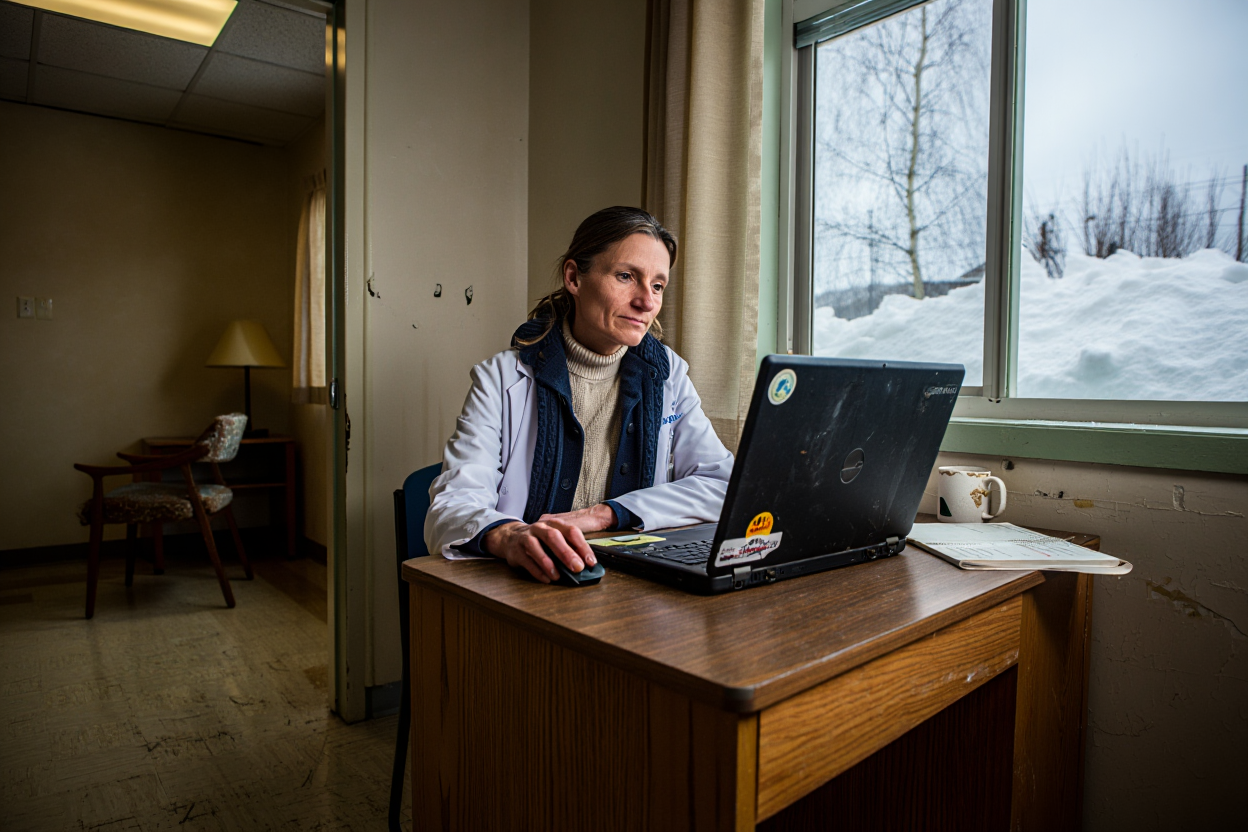The Wasilla, Alaska Hospital Automated Their Therapy Notes with S10.AI
How a Small Mental Health Facility Enhanced Efficiency and Care Quality in Just One Week

Clinician Profile
Name
Dr. Emily Hargrave
Role
Lead Psychotherapist
Years of Experience
16
Specialization
Trauma-informed therapy and mood disorders
Practice Setting
Outpatient mental health services
Years of Technology Use (Prior)
No EHR, manual documentation
Clinical Scenario
Wasilla Mental Health Hospital in Alaska was overwhelmed with documentation burdens. Without an EHR system, therapists like Dr. Emily Hargrave were manually typing long-form notes for each patient visit. Initial assessments could take 2–3 hours, and follow-up notes added additional strain. This slowed down patient care, reduced daily caseload capacity, and affected staff well-being. The hospital deployed S10.AI Medical Scribe to automate therapy note documentation. With tailored templates for both assessment and follow-up notes, documentation time was cut dramatically — from hours to just minutes. This freed clinicians to focus more on therapeutic engagement rather than admin work.
Documentation Burden in Mental Health Practice
Mental health providers spend up to 35% of their time on documentation, contributing to burnout and limiting access to care.
Source: Journal of Behavioral Health Services & Research, 2023
AI Documentation in Psychotherapy
AI-assisted documentation can reduce time spent on notes by 70%, while improving accuracy and standardization.
Source: Digital Health Innovations in Clinical Practice, 2024
Clinical Knowledge Check
What was the primary reason the Wasilla Hospital implemented S10.AI Medical Scribe?
About the Facility
Location: Wasilla, Alaska
Type: Community-based mental health hospital
Team Size: 4 therapists
Patient Volume: 8–10 per day
Technology: No EHR system before S10.AI
Decision-maker: CEO
Specialization: Trauma, anxiety, depression, family therapy
Key Challenges Before S10.AI
- 2–3 hours spent on each initial assessment
- Therapists burnt out by excessive admin work
- Documentation backlog reduced session availability
- No automation or scribing tools in place
- Inconsistent note formats and delayed entries